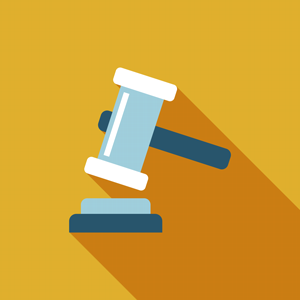A wage garnishment happens after an attorney gets court permission to take periodic payments from your wages to satisfy an outstanding balance on your account. While a garnishment can take you by complete surprise, it’s often the last resort taken by creditors and attorneys after they’ve exhausted all other options.
What Happens When Your Wages Are Garnished?
Your paycheck will be lower. Wage garnishment leaves you with with less money to live on each month since the amount is taken directly from your pay. Businesses aren’t allowed to garnish your whole paycheck. Federal and state laws limit the amount that your wages can be garnished and certain types of income, like social security and disability pay, can’t be garnished at all.
Your employer will know. Once the attorney has permission to garnish your wages, they will notify your employer, so your employer will withhold the garnishment amount.
Multiple garnishments put your job at risk. Legally, your employer can’t fire you for just one garnishment, but they can terminate your employment for a second garnishment. Unless you take action to satisfy the debt (or leave your job), the wage garnishment will continue until the debt is completely repaid.

How to Prevent a Wage Garnishment
Your wages (generally) can’t be garnished, unless you’ve first been sued and the attorney has won a judgment against you. If you’ve received notice that your wages are about to be garnished for a judgment, you may be able to stop the process by striking a deal with the attorney before the garnishment goes into effect.
Don’t take an attorney’s threats to sue you lightly. A lawsuit is one of the first steps an attorney will take before getting permission to garnish your wages. Once you receive a lawsuit summons, it’s a good time to start negotiating to avoid having your wages garnished. Hire your own attorney if you don’t feel comfortable doing this on your own.
What If You’re Already Being Garnished?
By the time your wages are being garnished, the business has likely already filed and won a lawsuit against you. Unfortunately, by that time, you’ve lost the opportunity to debate whether you legitimately owe the debt – a court has already decided that you owe.
You don’t have to do anything. If you’re ok with your wages being garnished, you can adjust your lifestyle to live on the pay remaining after the garnished amount is deducted. Once the balance is paid off, your paycheck will go back to normal. But, depending on how much you owe, this could take years.
One way to stop the garnishment is by filing bankruptcy. If the debt is discharged in Chapter 7 bankruptcy, the garnishment will stop forever. However, bankruptcy can leave long lasting damage to your credit history and make it very difficult to rebuild your credit.
Also, bankruptcy is a pretty drastic solution for just one wage garnishment.
The attorney may agree to stop the wage garnishment if you can make a settlement payment on the debt. For the attorney and the business they represent, settling the debt means getting an upfront payment, closing out the account, and eliminating administrative work for the account. Take a close look at your finances and your savings to see if you can afford to pay a lump sum settlement to take care of the account and stop the garnishment.
Even if you can’t get the attorney to agree to a settlement, you may avoid a wage garnishment by setting up a regular payment plan via ACH, credit, or debit. Allowing the attorney to draft regular payments from your bank account is similar to a garnishment for them, in the sense that they receive guaranteed monthly payments. However, you avoid the stigma of having a garnishment and have more control over how and when payments are made.
Attorneys can easily administer either payment arrangement through the SettlementApp and you can use the app to accept the arrangement, set up your payment, monitor the account progress, and confirm when the balance is completely taken care of.
– HealPay blogger, LaToya Irby.